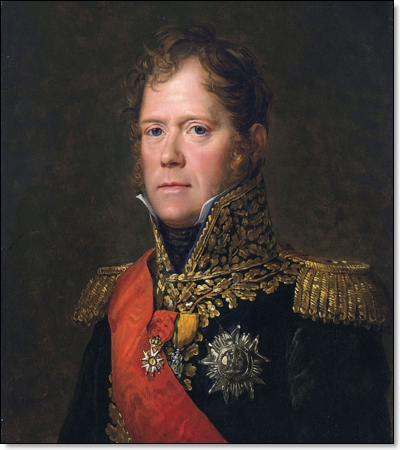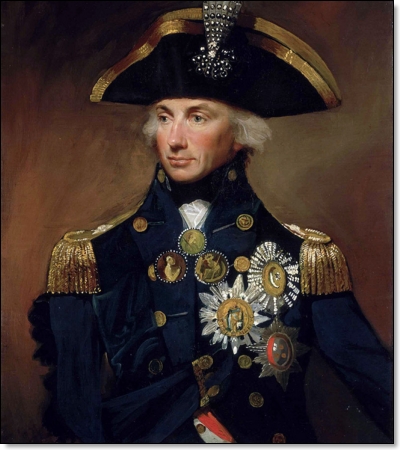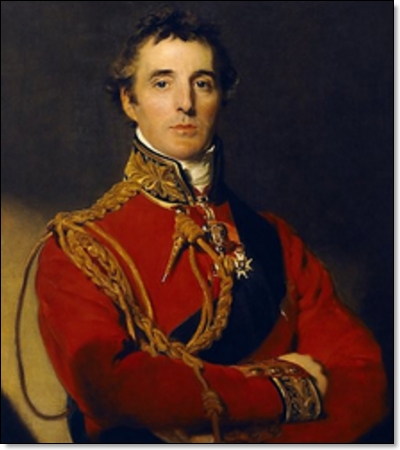Marshal Davout
Napoleon's Only Undefeated General
Louis-Nicolas d'Avout (10 May 1770 – 1 June 1823), better known as Davout (or sometimes Davoust), was a Marshal of France and one of Napoleon's most brilliant generals. He participated in all of Napoleon's major campaigns and most of the major battles, though he was absent from the fighting at Waterloo. Davout had the singular distinction of never having been defeated in battle throughout his long military career. His reputation as s stern officer earned him the nickname, the "Iron Marshal".
Davout was born into a poor family of the petty nobility and began his military career under the old monarchy. After the Revolution, he served in the revolutionary armies and gained distinction during the many campaigns in which France was engaged during this unsettled period. He was with Napoleon in Egypt, and continued to serve him with distinction in the Emperor's campaigns against Prussia, Austria, and Russia. He was instrumental in the French victory at Austerlitz.
When the Emperor Napoleon was deposed and exiled to the island of Elba, following the disastrous Russian campaign, Davout refused to serve under the restored Bourbon king. Upon Napoleon's escape and return to France, Davout again swore allegiance to the emperor. He was entrusted with the key positions of Minister of War, governor of Paris and Commander in Chief of the National Guard. Davout's brilliant organizational skills allowed Napoleon to reconstituted his shattered armies and take the offensive, which culminated in the disastrous gamble of Waterloo.
Davout did not accompany the Emperor on his final campaign, and remained in Paris in accordance with his orders. Some historians believe that if Davout had been at the battle, he could have tipped the scales in favour of the French and garnered yet another victory and saved the empire. This is an example of how decisions made long before an actual battle can sometimes influence the course of history. In this case, Napoleon's decision to leave Davout in charge of the rear guard instead of having him in the thick of battle, where he was most needed, doomed the French cause.
After Napoleon;e defeat at Waterloo, Davout organized the futile defense of the capital. But upon Napoleon's capture and exile to St. Helena, he was stripped of his titles. He endeavored to save the commanders, especially Marshal Ney, who had been charged with treason, saying that they had only acted under his orders, but without success.
Despite his unwavering service to the French Empire, Napoleon later wrote bitterly about Davout and described him as a traitor.
Davout eventually regained favour in the Bourbon court and his rank and title were restored to him in 1817. He died in 1823 at the age of 57. His name (spelled Davoust) is inscribed in the Arche de Triomphe in Paris.


.jpg)
